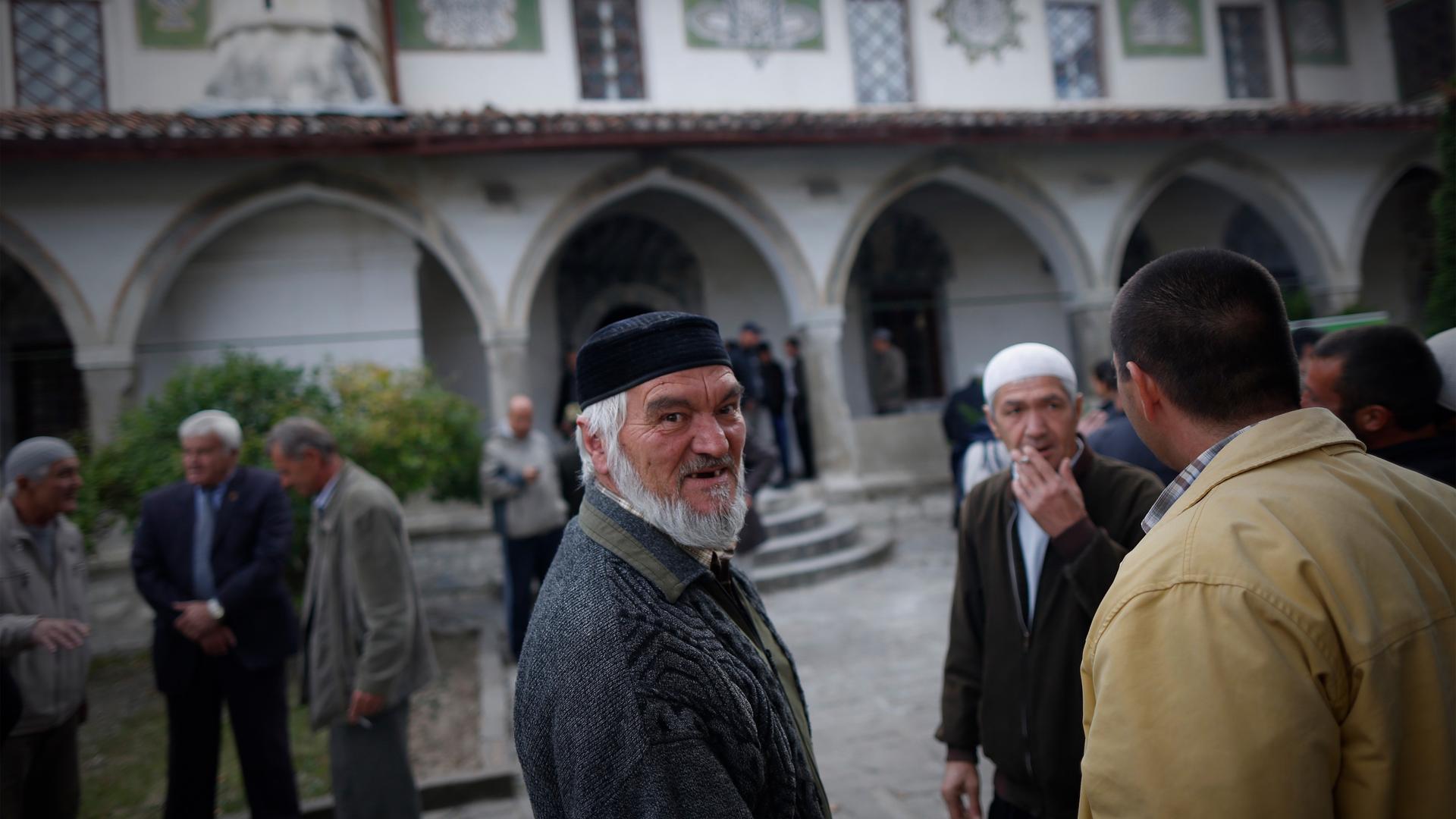7 years after Russia’s annexation of Crimea, Indigenous Tatars still face persecution
Seven years ago, Russian President Vladimir Putin addressed the nation to announce that Russia was annexing the Crimean Peninsula — a piece of land about the size of Maryland that sticks out into the Black Sea.
On the seventh anniversary of the annexation from Ukraine, which was declared illegal by the international community back in 2014, the Group of Seven major industrialized countries issued a strong condemnation of what it called Russia’s ongoing “occupation” of Crimea.
The foreign ministers of Britain, Canada, France, Germany, Italy, Japan and the US said in a joint statement that Russia’s actions continue to “undermine Ukraine’s sovereignty, territorial integrity and independence.”
They also accused Russia of human rights abuses on the peninsula and called for international monitors to be given access there.
Moscow has argued that Crimea was incorporated in 2014 after the vast majority of local residents voted for joining Russia weeks after the ouster of Ukraine’s former Russia-friendly president, even though most of the world rejected the referendum as illegitimate.
One of the groups most affected by the illegal annexation of the peninsula was the Indigenous Crimean Tatars. Some are still facing persecution from Russian government authorities.
“We have been in Crimea since time immemorial. We have suffered much under the colonization of the then-imperialist Russia and in the 20th century under Stalin, who deported the Crimean Tatars en masse from their homeland to places of exile,” said Ayla Bakkalli, the representative for Crimean Tatars at the United Nations.
Bakkalli spoke to The World’s Marco Werman about what it has been like for Tatars to live under Russian occupation.
Marco Werman: So, the oppression has been going on for years, for decades. It’s been seven years since Russia’s illegal annexation of Crimea. It was a stunning moment for Crimea, for Ukraine, for the world. What have the past seven years been like for Crimean Tatars living under Russian occupation?
Ayla Bakkalli: The relationship between Russia and Crimean Tatars has been one of oppression, discrimination, xenophobia, and they have never really heard the voices of the Crimean Tatars. When Ukraine became independent, the Crimean Tatars from places of exile returned to their homeland. So, during those ensuing short years of freedom, they were able to begin their lives again. About 300,000 Crimean Tatars returned. So, when 2014 occurred, it was surreal. It was as if Stalin had come back again because the Indigenous Crimean Tatars were the voices of those who opposed the annexation of Crimea. The Crimean Tatars have a very bitter experience of Russia.
For Crimean Tatars who remain there, I mean, there have been reports of political persecution. Can you spell that out for us? What does that look like? What have you heard?
Well, the opposition of Crimean Tatars comes in different forms according to Russia. For example, Crimean Tatars who practice their own faith are interpreted by the Russian occupiers as extremists, as terrorists. They are Muslim people, so these gatherings are interpreted as extremist endeavors. Their homes are ransacked, they come in looking for religious material. Sometimes, some of these materials are planted. For example, the Crimean Tatar families have said that when the Russian soldiers come in, ransack their home and take in Crimean Tatars, they shouted, “Our children are not terrorists, our children are the Indigenous people of Crimea.”
Ayla, do you have family and friends still in Crimea?
Yes, I do.
I mean, clearly, you are deeply invested in the future of Crimea. How have the past seven years affected you and your loved ones?
Well, I cannot see my loved ones as often as I wish to. I would like to see them more because during Ukraine’s independence, lots of Crimean Tatars used to come to New York and they would meet long-lost relatives and gather together. And during Ukrainian independence, it was an experience also of civic consciousness-raising that has also expressed itself.
It sounds like the silver lining is that the political pressure from the annexation led to maybe a greater sense of identity for Tatars and determination to overcome the occupation.
Yes, you are absolutely right. The silver lining was that once you taste freedom, don’t you see, you can never go back. And I know it may seem a contradiction that Indigenous people and the nation-states in which they live need not always have a frictional relationship. That when this relationship is built on communication, on listening, on interaction, it works. And Ukraine listened to Indigenous voices.
This interview has been lightly edited and condensed for clarity. AP contributed to this report.
Our coverage reaches millions each week, but only a small fraction of listeners contribute to sustain our program. We still need 224 more people to donate $100 or $10/monthly to unlock our $67,000 match. Will you help us get there today?
